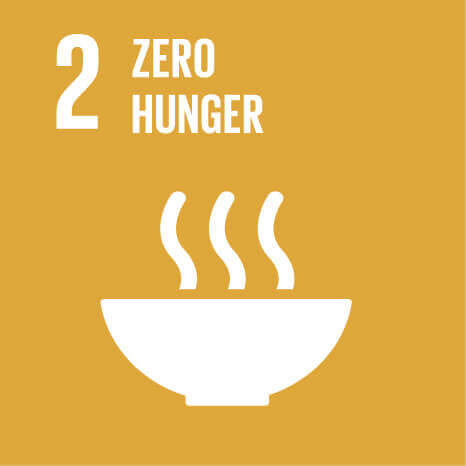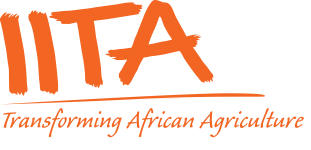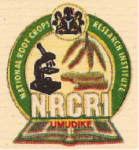Nigeria releases five cassava varieties developed with genomics-assisted breeding and consumer preference studies
Published on: March 28, 2021, Submitted by Ismail Rabbi on: March 28, 2021, Reporting year: 2020
The NextGen Cassava project, implemented by the International Institute of Tropical Agriculture (IITA) and the National Root Crops Research Institute (NRCRI) has used genomics-assisted breeding to rapidly breed new cassava varieties demonstrated to meet the preferences of farmers and consumers. Five new varieties were released on 17 December 2020 by Nigeria’s National Release Committee. Other new varieties are in the pipeline in Uganda and Tanzania.
Cassava varieties developed with genomics-assisted breeding and consumer preference studies
Half a billion people in Africa eat cassava every day. Cassava is drought-resistant and can grow on poor soils, making it more adaptable to a changing climate than maize and other thirsty cereals. Nigerians have been turning cassava into popular foods like gari and fufu for generations, but the industry also uses the crop to make flour, starch, and alcohol.
On 17 December 2020, Nigeria’s National Release Committee approved five new cassava varieties. They are the result of a close collaboration between the National Root Crops Research Institute (NRCRI) and the International Institute of Tropical Agriculture (IITA), using advanced prediction-based techniques like genomics-assisted breeding. This is an important research outcome, showing that the implementation of genomic selection and genotyping of breeding lines, accelerated the breeding cycle, and resulted in the release of improved varieties. These are the first cassava varieties released using genomics-assisted breeding. This work was part of the Next Generation Cassava Breeding Project, led by Cornell University and whose goal is to empower farmers through innovative, sustainable cassava breeding.
All five varieties (Game-Changer, Hope, Obasanjo-2, Baba-70, and Poundable) are high-yielding and resistant to viral diseases. Poundable is the first sweet variety of cassava released in Nigeria. It can be boiled and eaten without elaborate processing. Hope and Baba-70 are excellent for making into gari and fufu, so they benefit cottage processors, most of whom are women. Game-Changer and Obasanjo-2 have a high and stable starch content, so farmers will find ready buyers at flour mills and starch factories.
The varieties were chosen after conducting consumer preference studies. This ensures that the new releases will meet the demands of farmers, processors, and others and that Nigerians will grow, process, and eat these varieties for years to come.
On 17 December 2020, Nigeria’s National Release Committee approved five new cassava varieties: Game-Changer, Hope, Obasanjo-2, Baba-70, and Poundable. The varieties were bred as part of Cornell University’s NextGen Cassava project, implemented by the National Root Crops Research Institute (NRCRI) and International Institute of Tropical Agriculture (IITA). This achievement is the culmination of an ambitious modernization program implemented by the cassava programs of IITA and NRCRI under the NextGen project. The breeding work was conducted with advanced predictive breeding techniques, particularly genomic selection, which shorten a four or five-year breeding cycle down to a year or two. Plant breeders also boosted their efficiency by using digital tools to collect and manage all the data through an open access data repository for breeding data management and decision-making (www.cassavabase.org). Additionally, the programs better control of flowering and seed set to ensure that good gene are tapped from parents with good breeding values.
This is an important research outcome, showing that the implementation of genomic selection and genotyping of breeding lines, accelerated the breeding cycle, and resulted in the release of improved varieties. These are the first cassava varieties released using genomics-assisted breeding.
The varieties have been through years of consumer preference studies, including testing by the male and female farmers and the rural women who turn cassava into gari and fufu, thus ensuring that they will be accepted by the people who plant, process and eat cassava. The varieties not only resist pests like cassava mosaic disease (CMD), but they have the right color and texture when prepared as meals. This broad acceptability, plus the varieties’ high yields, will improve farmers’ food security and livelihoods.
The five varieties will be available to Nigerian farmers soon. New seed companies, IITA GoSeed, and Umudike Seeds produce the early generation seed (EGS) that seed multipliers will use to grow certified seed for farmers.
Nigeria’s Minister of Agriculture and Rural Development, Alhaji Muhammad Sabo comments regarding the variety release:
“The foundation of a solid crop value chain is based on best-bet varieties. As a country, we are excited that the new NextGen cassava varieties address the needs of the cassava industry and we look forward to providing millions of Nigerian cassava growers access to these varieties.”
There are also improved cassava varieties in the pipeline in Tanzania (developed by Tanzania Agricultural Research Institute) and Uganda (National Crop Resources Research Institute).
Stage of Maturity and Sphere of influence
-
Stage of Maturity: Stage 1
-
Contributions in sphere of influence:
1.4.3 - Enhanced genetic gain
Acknowledgement
This research was undertaken as part of the CGIAR Research Program on Roots, Tubers and Bananas (RTB) and supported by CGIAR Trust Fund contributors.
Funding support for the NextGen Cassava project was provided by the Bill & Melinda Gates Foundation and by the United Kingdom’s Foreign, Commonwealth & Development Office. NextGen breeding in Nigeria is implemented by IITA and NRCRI.
Projects
-
Next Generation Cassava Breeding
-
Next Generation Cassava Breeding (Phase II)









